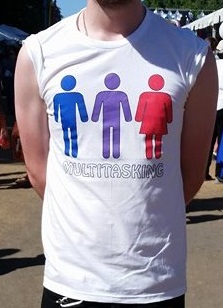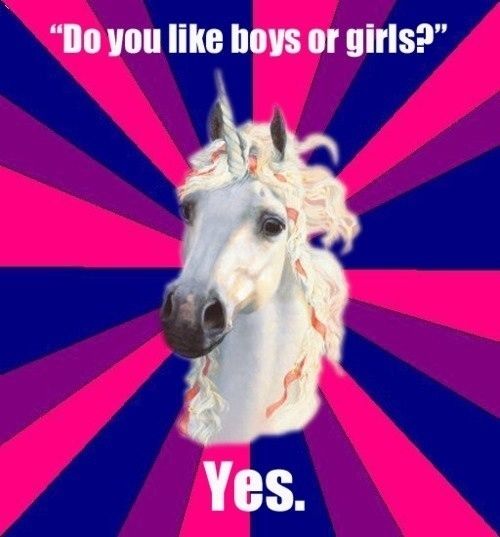It might seem odd that a bisexual advocate would not be 100% out to family and friends, but that's my truth. As I've said before, being out is a choice and a process you make every day, not a one-time, bam-you're-done, kind of thing. So for me, going "home for the holidays" means mentally preparing to be around people to whom I'm not out as bisexual and polyamorous.
Now, I've had people try to tell me that if I'm not 100% out, I shouldn't be living a queer lifestyle. Everyone from a straight ally to a fierce bisexual champion has held that hard line. Fuck that. Here's the thing: family is important. Community is important. Because I value my relationships with my family and my husband's family, and because my bisexuality and our polyamory are not a necessary part of those relationships, I am not out to most of them. And I'm okay with that. Sitting down to Thanksgiving dinner and saying what I'm grateful for doesn't need to include the amazing threesome I had last week. Yes, things would be different if we were in a serious long-term relationship with a third partner and wanted to bring her home for Christmas, but we will cross that bridge when we come to it. For now, not being out to most family members works for me, and for us.
That's my own story, and my point for you is this; being out is a personal decision. Don't let anyone (including me!) make it for you. If you're not out to your family, be comforted by the knowledge that there is an amazing community out there (whether it's in a support group, or on social media) who does know and love you for your queer identity. You may need to come out to them if not being out to your family is negatively impacting you or others, (as it has for me in the past - one of the reasons I fully came out to my parents.) Whether you're out to them or not, cherish your family and your relationships with them. Because in the end, that's what the holiday season is all about.









